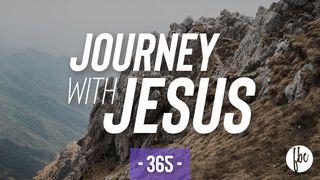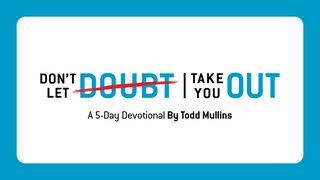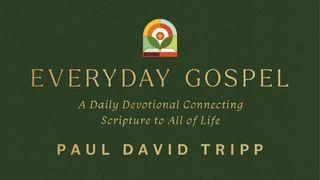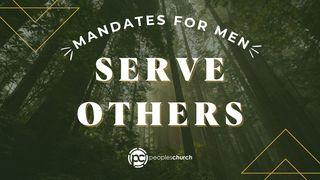Verses: Psalm 23Sample

Psalm 23
A Psalm of David.
[1] The LORD is my shepherd; I shall not want.
[2] He makes me lie down in green pastures.
He leads me beside still waters.
[3] He restores my soul.
He leads me in paths of righteousness
for his name’s sake.
[4] Even though I walk through the valley of the shadow of death,
I will fear no evil,
for you are with me;
your rod and your staff,
they comfort me.
[5] You prepare a table before me
in the presence of my enemies;
you anoint my head with oil;
my cup overflows.
[6] Surely goodness and mercy shall follow me
all the days of my life,
and I shall dwell in the house of the LORD
forever.
It’s crazy to think that Psalm 23 is likely the world’s most famous poem! We find its words on coffee mugs, displayed on signs, and quoted at funerals. While this broad reception is a wonderful gift, familiarity also runs the risk of breeding contempt. We can approach this psalm without the respect and wonder it deserves! Our prayer for the next three days is that as you read, meditate, and pray through this psalm, you will be stopped in your tracks! We’re asking God for the gift of new eyes and an open heart to Him in this psalm.
The author of Psalm 23, King David, spent a season as a shepherd before becoming king. In Psalm 23, David likens God to a shepherd caring for his sheep. We want to highlight three simple yet profound truths we find in the first two verses:
First, we are not shepherd-less.When life or circumstances get crazy, it’s easy to see chaos as either the absence of God or abandonment by God. We think things like, “If God were real, this wouldn’t happen…” “If He loved me or were near me, this sorrow wouldn’t afflict me.” And yet here, David loudly proclaims that in every season we might find ourselves in, there is a shepherd. We are not a shepherd-less flock without direction; we are not alone!
Second, we have a shepherd with a name. Merely having a shepherd is not necessarily good news. Shepherds can be cruel, mistreating their sheep. Bad shepherds can ignore their sheep or only look after themselves. David tells us that our shepherd has a name: the LORD. When you see LORD in all caps in the Bible, it is referring to God’s personal, covenantal name that He gave to His people. In revealing His name, he aimed to reveal what He was like. In this case, it not only reminds us of his lordship but also His covenantal faithfulness. Though we are a wayward flock who often reject our shepherd, seeking out other shepherds who we think might provide for us in ways we want, amazingly, we find in God a shepherd who is faithful despite His sheep. We may be stiff-necked and not the most bright, but God is tender-hearted and faithful. He isn’t vindictive but has graciously covenanted Himself to His people!
Third, we have a shepherd who leads & provides. God’s name tells us that God is good, and His goodness manifests itself in two ways in these verses: leading His sheep and providing for them. God’s sheep are never in want because He leads them and knows what they need to provide for them. In this passage, we find God extending food (green pastures) and drink (still waters) to them as well as rest. They are lying down in these green pastures of plenty with their shepherd; they are being led by still waters so they can drink in peacefully.
God’s greatest demonstration of goodness and provision was in sending His only Son, who is known as our Good Shepherd (John 10:10), to take on flesh, become a sheep (one of us), and ultimately lay down His life for us that we might be brought into the fold of God. He was abandoned and in want that we might become beloved sheep. He was laid down not in green pastures but rather on a gruesome cross and in a cold tomb; He was led not by still waters but rather by turbulent waters for sins He did not commit. This Shepherd we come to is trustworthy and kind! If we as sheep could understand this goodness and trust in it more, we would leave His side much less often…
Meditate
- Read- Read the whole of Psalm 23 a couple of times out loud; once you’re done with that, zero in on verses 1-2 and re-read those.
- Pray- In your journal, write out verses 1-2. The intention here is to slow down with the passage and linger in it. What words or phrases jump out at you? Turn those observations into a prayer for your day. Try writing these verses in your own words.
- Sing- Listen to and/or sing Psalm 23:1-2 by Zach Winters below. As you can throughout your day, try to listen to the song a few times on our Verses app or your digital streaming platform of choice.
Scripture
About this Plan

Memorize and meditate on Psalm 23 for three days through songs and daily devotions. The plan includes three songs written straight from Psalm 23 by Zach Winters, Phil Maucieri, and A Boy and His Kite! Each song is accompanied by a daily devotion to help you meditate on the content and themes of the Psalm.
More
Related plans

Journey With Jesus 365

In Her Image: Character Study of the Proverbs 31 Woman

The Benefits of Shared Spiritual Goals: How Starting as Friends First Enhances Romantic Relationships

Sound of Heaven: A 6-Day Devotional by Danny Gokey

Radical Love

Don't Let Doubt Take You Out

Everyday Gospel: A Daily Devotional Connecting Scripture to All of Life

Protect Your Peace

Every Place
